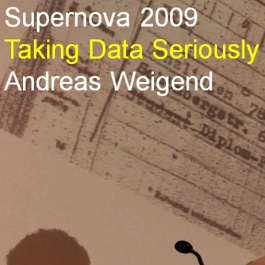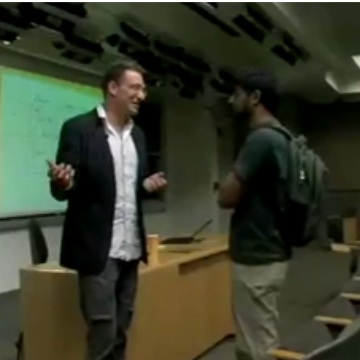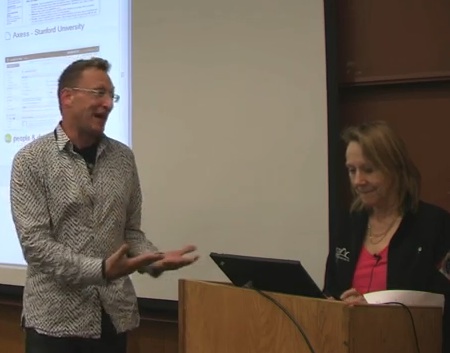|
|
|
|
My courses focus on the use of data, the importance of data, and the future of data. I regularly teach the course Social Data Revolution at Stanford and UC Berkeley, as well as interdisciplinary courses with other faculty at Stanford. I am fortunate to bring to the classroom lessons from the boardrooms of large companies as well experiences from startups, several of which were founded by formers students. Social Data RevolutionAmazon, Google, and Facebook have revolutionized the way individuals interface with the world. This course presents the underlying principles of the digital networked economy. Through lectures and case studies, students will understand the opportunities and risks of social data. Guest speakers share their experiences and illustrate the far-reaching impact of data for individuals, business, and society. They have included Steve Huffman, Max Levchin , and Reid Hoffman. This popular course has evolved from a graduate level course on data mining and e-commerce that was created from my key insights working with Jeff Bezos at Amazon. There are different versions of the course adjusted for undergraduate, graduate, and business school audiences. The undergraduate level course creates critical awareness of new data sources and sparks curiosity for what can be done with all those data. The graduate level course includes team projects using real data. For example, some teams use data from Twitter to find influencers, and other teams use data from Walmart to predict retail sales. The business school version is called The Digital Networked Economy, taught at CEIBS, Cheung Kong, INSEAD, Tsinghua, and UC Berkeley (Haas). INFO 290A is offered Fall 2015 at UC Berkeley. Networks: Ecological, Revolutionary, DigitalWhy is the word network used to describe the behavior of ants, 18th century revolutionaries, and people on Facebook and WeChat? Do these networks share certain properties and what might we learn by comparing them? Through project-based exercises, students learn to study, analyze, and write about networks from the perspectives of a biologist, a historian, and a computer scientist. Prof. Gordon studies how ants communicate and network to create vast infrastructures underground. Prof. Edelstein studies how social networks were created and used during the French Revolution. Prof. Weigend studies the digital footprints we leave, including our location history, credit card purchases, web searches, and social media activity. The goal is to use the concept of the network to deepen our understanding of the natural world, historical change, and our own social lives. THINK 29 was last offered Spring 2014 at Stanford. : my history :In addition to my extensive industry experience, my teaching is based on my academic research, which has resulted in over 100 published papers. After my Ph.D. at Stanford, I was a post-doc at Xerox PARC and a fellow at the Santa Fe Institute. Subsequently I was full-time faculty, first Assistant Professor in Computer Science and Cognitive Science at the University of Colorado at Boulder, and then Associate Professor at the Stern School of Business at New York University. |
course recordings / transcripts2015 | 2014 | 2013 | 2012 | 2011 | 2010 | 2009 | 2008 | 2007course notes / wikis2015 | 2014 | 2013 | 2012 | 2011 | 2010 | 2009 | 2008 | 2007 |




